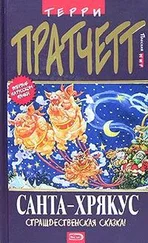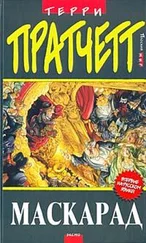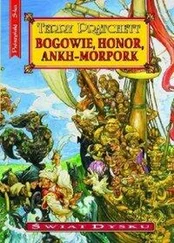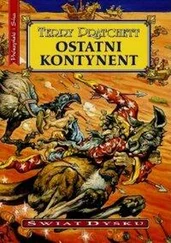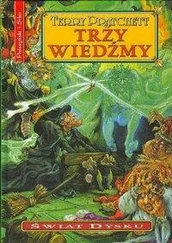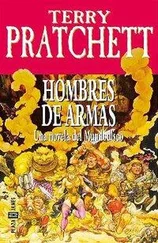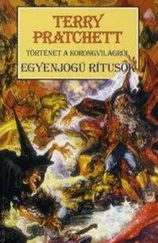He looked at the panel critically, like a man trying to decide between cake and pie.
“It could be,” he said, “but it could be a mask, or scales, or have some mysterious religious significance. It doesn’t help you much, I’m sorry to say.”
Daphne sighed. “Look, if I found some evidence that they knew about lenses, would you accept they may have known how to build a telescope?”
“Yes, that would be reasonable. I won’t accept that they did, mind you, only that they may have done so.”
“Come and see.”
This time she led him to the other side of the gods, to a niche in the wall where the white panel had fallen out.
“One of the boys found them in silt at the bottom of the god pool. The glass is broken on one side and the other is cracked, but you can see they were lenses. Be careful.” She laid them carefully in his hand.
He blinked. “Gold-rimmed spectacles… ” But he breathed the words rather than said them.
“Have I proved my telescope theory, Papa?” she said gleefully. “We know that eyeglasses lead on to telescopes.”
“Once before, at least. Or since, I’m sure you would say. Why didn’t you show me these straightaway?”
“I just wanted to make you admit I was doing proper science!”
“Well done,” said His Excellency. “You have built a very strong hypothesis indeed, but I’m sorry to say that you have not proved the full theory. You’d need to find the telescope for that.”
“That’s unfair!” said Daphne.
“No, it’s science,” said her father. “‘Could have’ isn’t good enough. Nor is ‘might have’! ‘Did’ is the trick. But when you announce this, a lot of people will try to prove you wrong. The more they fail, the more right you will become. And they will probably try to suggest that some European traveler came here and lost his eyeglasses.”
“And his false teeth made of gold?” snapped Daphne. She told him about Mrs. Gurgle’s proudest possession.
“I would very much like to see them. Some people will find them easier to accept. Don’t be discouraged about the telescope. What is clear is that this place was the home of a hitherto unknown seafaring culture that was very adept in the technical arts. Good heavens, my girl, most people would be ecstatic to have discovered all this!”
“I didn’t,” said Daphne. “Mau did. I just had to look over his shoulder. He had to walk past a hundred thousand ancestors. This is their place, Papa. Their ancestors built it. And put on the globe there the symbol of a wave breaking in front of the setting sun, which every man of the islands has worn as a tattoo for thousands of years. I saw it! And you know what? I can prove that no European has been into this cave before me.” Daphne looked around, chest heaving with passion. “See the gold on the gods and the globe and the big door?”
“Yes. Of course, dear. I could hardly fail to notice.”
“There you are, then,” said Daphne, picking up the lamp. “It’s still here!”
Mau sat with one of the Judy’s charts on his knees. This was, officially, a meeting of the island council, or would have been if anything on the island was official. Anyone could come, and because anyone could, many didn’t. There were more new people to be cared for and fed; many might go back to their own islands, if they still existed, but the people had to be fit and fed. That meant more work all around. And some people didn’t turn up because they had gone fishing; when it comes to voting or fishing, sea bass usually wins.
“All the red places belong to the English trousermen?” Mau asked.
“Yup,” said Pilu.
“That’s a lot of places!”
“Yup.”
“They’re not too bad,” said Pilu. “Mostly they want you to wear trousers and worship their god. He’s called God.”
“Just… God?”
“Right. He’s got a son who is a carpenter, an’ if you worship him, you climb the shining path when you die. The songs is nice and sometimes you get a biscuit.” Pilu watched Mau carefully. “What are you thinking, Mau?” he asked.
“Other people will come. Some will have guns,” said Mau thoughtfully.
“True,” said Pilu. “There is a lot of the yellow gold in the cave. Trousermen like it because it shines. They are like children.”
“Big children,” said Milo, “with guns.”
“What do you think we should do, Cahle?” said Mau, still looking at the maps.
The woman gave a shrug. “I trust the ghost girl. A father of a girl like that would be a good man.”
“How about if I take a canoe and sail it to the trouserman island and stick my flag in the sand?” said Tom-ali. “Will that make it our place?”
“No,” said Mau. “They would laugh. Flags are like guns that flap. If you have a flag, you need a gun.”
“Well? We have guns too.”
Mau fell silent.
“And bad gunpowder,” Pilu pointed out.
“I think… I think if you are a suckfish in a sea o’ sharks, you must swim with the biggest shark,” said Milo. This met with general approval; the island council was still learning about international politics, but they were experts on fish.
They all looked at Mau, who was staring at the chart again. He stared at it for so long that they began to worry. There had been something different about him since the Raiders had left. Everyone said so. He walked like someone whose feet only touched the ground because he told them to; when you talked to him, he looked at you like a man scanning a new horizon that only he could see.
“We cannot be stronger than the Empire,” he said, “but we can be something it doesn’t dare to be. We can be weak. The ghost girl told me about a man called Eyes-Ack New-Tan. He was not a warrior, he had no spear, but the sun and the moon spun inside his head and he stood on the shoulders of giants. The king of that time did him great honor because he knew the secrets of the sky. And I have an idea. I will talk to the ghost girl.”
There should be a word like honeymoon, Daphne thought, but not about husband and wife, rather about parent and child. This one lasted twelve days, and she felt as though she was the parent and he the child. She’d never seen her father like this before. They explored the whole of the island; he had picked up an amazing amount of the language in a short time. He went torch fishing with Milo and got rascally drunk on beer with the other men, so that they all ended up paddling one of the big canoes in several directions at once while singing the words of his old school song.
He taught them cricket, and they played a match against the soldiers and sailors from the ship, with rifles for stumps. It became very interesting when Cahle was allowed to bowl.
Daphne’s father declared that not only was Cahle the fastest bowler he had ever seen, but she also had an almost Australian talent for vicious and forensic accuracy with the ball. After the first three whimpering soldiers were carried down to the lagoon so they could sit in the water until the stinging died away, the fourth man took one look at her thundering toward him with her right arm swinging and ran away into the woods, clutching his helmet over his groin. For the sake of the game she was banned from bowling after Daphne’s father explained that women should not really be allowed to play cricket because they fundamentally didn’t understand it. But it seemed to Daphne that Cahle understood it very well, and therefore tried to get it over with as quickly as possible so that they could get on with something more interesting, since in her opinion the world was overwhelmingly full of things that were more interesting than cricket.
It was not much better for the soldiers when the islanders went to bat. Not only were they devilishly good at swinging a bat, but they had somehow picked up the idea that the ball should be aimed at someone on the opposing side. In the end the match was declared a draw because of injuries, most of them sitting in the lagoon.
Читать дальше

